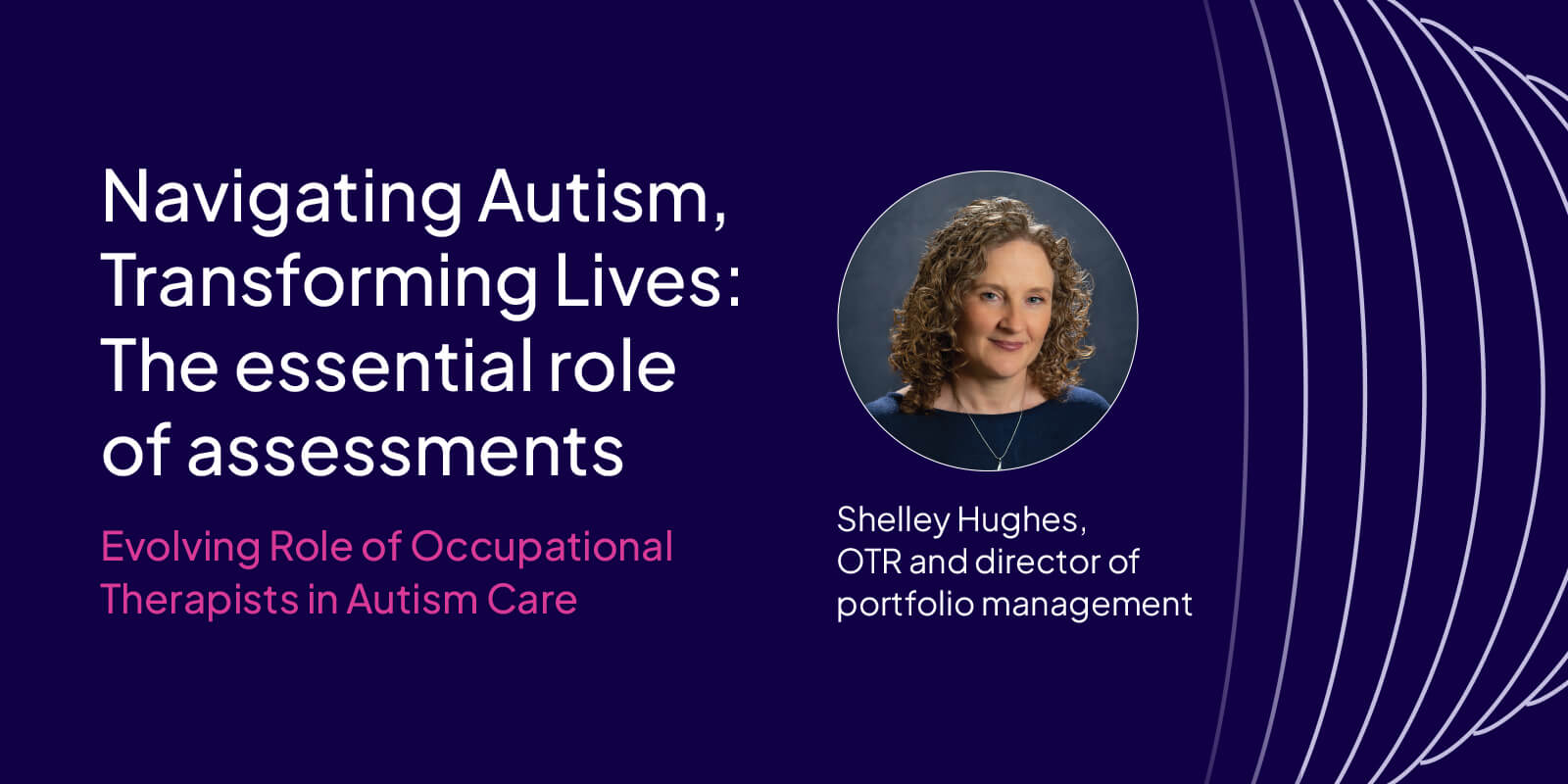Evolving Role of Occupational Therapists in Autism Care
by Shelley Hughes, OTR and Director of Portfolio Management and Delivery, Pearson Clinical Assessment

For autistic adults and children, a comprehensive approach to patient care can enhance individual strengths, provide tools to overcome challenges, and improve long-term outcomes. As the prevalence of autism has increased, so has the recognition of the value of occupational therapists (OTs). In an engaging conversation on the “Navigating Autism, Transforming Lives” podcast, guest Shelley Hughes, an occupational therapist and director of portfolio management for Pearson Assessments, called OTs “integral members of the autism care team.”
Read more






